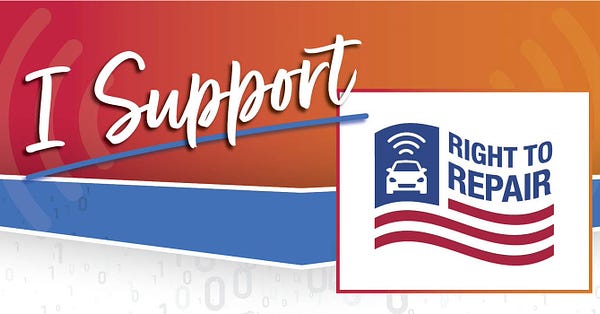Customers Revolt After Arlo Announces Premature End of Life for Cameras - Week in Repair
Does your tech have an expiration date? Customers who bought Arlo security cameras were told last month their devices would no longer be supported, and they weren't happy about it.
To keep an eye on the critters and animals running around her Ohio-based animal boarding service, Jodi Clum purchased 30 cameras from the security camera company Arlo Technologies, an article from the WSJ notes.
[The cameras totaled] over $6,000, and Clum spent hours wiring and mounting them throughout the kennel herself. Today, 26 are still running.
The model of camera that Clum bought are just five years old, so she was startled to receive an email from the company which called into question her future use of these products. Among other things, the company’s email said:
Older cameras in their “end-of-life stage” would no longer receive firmware updates.
Free cloud storage for images generated by the device would end. Users were offered a $13 a month service.
After the WSJ story dug into Arlo’s effort to walk away from its cameras, the company faced criticism and has since backtracked, extending its free seven-day storage policy indefinitely. Arlo also said it will support firmware and security updates for a minimum of one year.
The incident is just the latest in which consumers who purchased connected devices find their belongings subject to end-of-life policies, in which manufacturers end support for older models or force users to upgrade or pay for ongoing support.
In 2020, Belkin shut off its Wemo NetCam products, disabling its iSecurity+ video cloud service and rendering its NetCam home security cameras useless and its customers stranded without a way to access or control remote cameras.
Then there was the smart home hub maker Insteon which collapsed in April, 2022 leaving thousands of customers cut off from the company’s servers and without access to many of the features of the hub they purchased. (Insteon eventually came back under new ownership, offering a $40 annual subscription to access features of the device that were previously available at no cost, according to reports.)
The smart pet feeder maker PetNet was another smart product that went dark, leaving its customers with non-functional devices.
Shortened-lives for internet-connected devices
With the average family in the US owning 22 internet-connected devices ranging from smart speakers to medical devices, the trend of smart products suddenly “bricking” is likely to continue. A survey (PDF) of extended Internet of Things (xIoT) devices by the firm Phosphorus found that more than a quarter of them – 26% – were designated “end of life” (EOL) by their manufacturer, meaning that the product was not entitled to continued hardware or software support or further updates.
“This is only the tip of the iceberg – an enormous iceberg” said Ming Chow, a professor of computer science at Tufts University in a recent article. “Thanks to the acceptance of putting in a computer into everything, we will be seeing quite a lot more waste in the future –whether wasted energy or electronic waste in landfills, and more devices getting hacked.”
Other News
Agricultural right to repair bills are cropping up across the US. The right-to-repair movement has become the leading edge of a pushback against growing corporate power. Intellectual property protections, whether patents on farm equipment, crops, computers or cellphones, have become more intense in recent decades and cover more territory, giving companies more control over what farmers and other consumers can do with the products they buy. For farmers, few examples of those corporate constraints are more frustrating than repair restrictions and patent rights that prevent them from saving seeds from their own crops for future planting.
Do Americans have a right to fix their own stuff? Ongoing efforts to enshrine the right to repair in roughly half of U.S. states are soldered to a debate that goes back to the ancient Greeks: What does it even mean to own a thing? The answer goes to a deep-seated sense of fairness – once you buy something, it should be yours. But for a nation of do-it-yourselfers, where shade-tree mechanics were long a common sight, it also touches on America’s ability to refuel its natural ingenuity.
Electric vehicle startups like Rivian and Lucid using direct-to-consumer sales models may face difficulties in servicing their vehicles as they lack the established dealer networks and service centers that traditional automakers have, says Business Insider. That is alienating customers with lengthy wait times for repairs and maintenance and more limited service offerings.
Detailed teardowns of PlayStation’s VR2 hardware were shared by Sony, including a custom tool used to hold the headset during disassembly and an intriguing "adaptive trigger" module in the controller that can cause resistance or actively push back against the user's finger. Teardown videos are available to watch in the article.

Source: Hackaday Complicated technologies that most of us don’t understand how to maintain or fix are at the center of keeping us (that is, high income countries) alive and well. Author Eliza Daley reflects on the fragility of our infrastructure after her power went out during the Vermont winter. With more extreme weather events, she says everyone will need to adjust to living off-grid more frequently due to societal stresses.1
The importance of mixed waste sorting in reducing waste in the EU has been criticized by the European Waste Management Association after a recent study suggested that there are more cost-efficient and effective alternatives such as improving source separation.
The Clean Air Act should be enforced to enable farmers and ranchers to fix their own equipment says the National Farmers Union in its petition to the US Environmental Protection Agency. The NFU statement follows a complaint to the EPA in July by Repair.org and PIRG that alleged that agricultural equipment maker John Deere was not complying with the landmark Clean Air Act, which requires manufacturers to “give the ultimate purchaser of each new nonroad engine written instructions for properly maintaining and using the engine, including the emission-control system” and provide purchasers easy access to parts and repairs.
📡 Repair Legislation Radar
Colorado House passes right to repair legislation. The Colorado House of Representatives passed the bipartisan Consumer Right to Repair Agricultural Equipment Act (HB23-1011) with a 44-17 vote on Tuesday, the first major right to repair legislation to be passed so far in 2023.
Maine’s auto repair referendum has officially cleared the hurdle needed to get on the ballot. 74,686 signatures were validated which means voters will get to make their choice in November.
A third attempt to pass a "right to repair" bill is coming from Missouri State GOP Rep Barry Hovis, trying to allow farmers to fix their tractors and equipment without expensive dealer costs.
A "digital right to repair" law could be passed in Massachusetts. HD 3826 and SD 793 would require manufacturers of portable wireless devices to provide users and independent repair shops with access to parts, tools, diagnostics, firmware, and manuals. The latest push focuses on cellphones and tablets, and supporters argue that manufacturers have limited access to parts and diagnostic information, funneling consumers toward more frequently purchasing new products rather than maintaining the ones they already own.
Canadian legislation introduced to amend the Copyright Act. Bill C-244 allows for the diagnosis, maintenance, and repair of digital lock-protected devices, including farm equipment software, by third-party service providers, potentially reducing consumers' reliance on OEMs for servicing, and following the U.S. Freedom to Repair Act introduced in 2022.
Tweet of the Week


If you’re interested in just how reliant individuals are on complex technologies we have no control over - James Burke’s The Trigger Effect is worth a watch.



